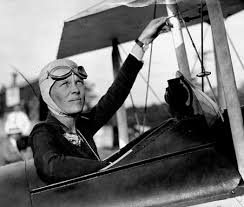More Exploring
 I went to the Chapel Hill Public Library today, which is FABULOUS.
I went to the Chapel Hill Public Library today, which is FABULOUS.
I went because I’ve finished all the books I downloaded onto my iPad before I left home and, feeling inspired by the Ursala K. Le Guin poem, which Greg Scharf quoted in his dharma talk (and which I have posted here), I thought I might find something more of hers to read.
I didn’t find any of her books in the poetry section. I found a lot of them listed in the science fiction section, a genre that I’m not really into, but I went ahead and looked through the shelves anyway, and I that’s where I saw… Always Coming Home …which is the last line of the poem Greg quoted!
I felt like I’d found bury treasure.
That poem grabbed hold of me from the very first line — so much so that I have started to memorize it — but when I looked on line, I couldn’t find anything about it. But then in the library, I saw the title of the book and I figured the poem must be in it (it is), even though the book is a novel…or sort of a novel, because it’s got drawings and maps and a glossary with an imaginary alphabet and all kinds of other outrageous things, including a cassette recording! (the book was published in 1985) of the music and poetry from the Kesh, the fictional people who are the subject of the book. (The library didn’t have the cassette, but it’s mentioned in the introduction, and an address in Oregon where it says you can order extra copies.)
I’m ashamed to say I’d never even heard of this book. But I have now!
And I’m totally engrossed in this literary adventure.
Here’s how it starts:
A First Note
The people in this book might be going to have lived a long, long time from now in Northern California.
The main part of the book is their voices speaking for themselves in stories and life-stories, plays, poems, and songs. If the reader will bear with some unfamiliar terms they will all be made clear at last. Coming at my work as a novelist, I thought it best to put many of the explanatory, descriptive pieces into a section called The Back of the Book, where those who want narrative can ignore them and those who enjoy explanations can find them. The glossary may also be useful or amusing.
The difficulty of translation from a language that doesn’t yet exist is considerable, but there’s no need to exaggerate it. The past, after all, can be quite as obscure as the future.
The ancient Chinese book called “Tao teh ching” has been translated into English dozens of times, and indeed the Chinese have to keep retranslating it into Chinese at every cycle of Cathay, but no translation can give the book that Lao Tze (who may not have existed) wrote. All we have is the “Tao teh ching” that is here, now.
And so with translations from a literature of the (or a) future. The fact that it hasn’t yet been written, the mere absence of a text to translate, doesn’t make all that much difference. What was and what may be lie, like children whose faces we cannot see, in the arms of silence.
All we ever have is here, now.
***
I find this “First Note” especially fascinating, since Le Guin herself has recently (2012) published her own translation of the Tao Te Ching. That’s next on my list!
